Females in the Field, Team Q&As
Q&A with Mira
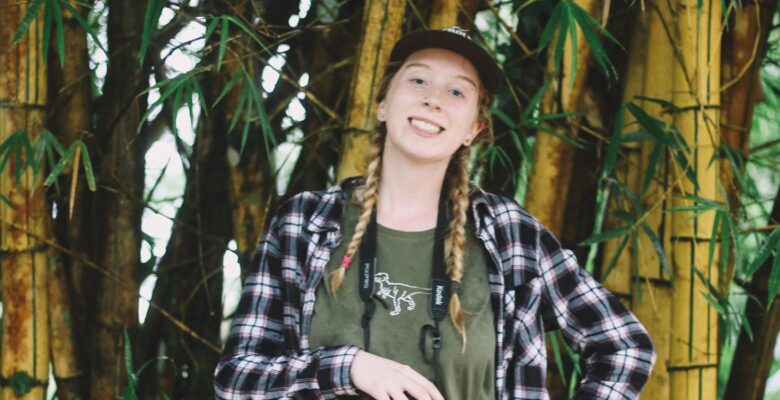
Meet Mira, the trailblazing spirit at Circle, who’s been rewriting the rules of archaeology from the steamy jungles of Belize to our strategy-packed office spaces. Known for her sharp wit and killer insights, she makes blending academic rigour with fieldwork look like the adventure it truly is. We wanted to get to know Mira a little better, so we asked her a few questions.
What brought you into the consulting archaeology industry?
At first, I just needed a job while I was still in school—that’s student life for you, right? But I wasn’t just looking for just any job; I wanted one that would tick all the right boxes in my field. For a long time, I was convinced that academia was my forever home. However, as life introduced me to new places and I delved deeper into the CRM industry, my horizons broadened. CRM turned out to be the ideal blend during my graduate studies, perfectly merging real-world practice with academic theory. Now, having moved into the office, I do miss the field occasionally, but it’s been rewarding to find a new niche within the industry that not only fuels more than one of my passions, but also allows me to balance the various aspects of my career development more effectively.
How did you first hear about Circle?
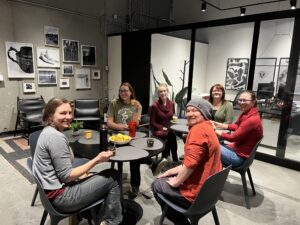
Circle first caught my eye a few years ago during one of my late-night Instagram dives. As I neared the end of my undergrad, the buzz about Circle grew even more through word of mouth around the department at the university. In 2018, I ventured to Belize for a month of fieldwork with the Stann Creek Archaeology Project. It turns out, one of my colleagues from that adventure joined Circle soon after. He raved about the company, and his enthusiasm was contagious—I’ve kept Circle on my radar ever since. Funnily enough, though he’s moved on, two of us from that Belize crew have made our way to Circle in the end!
What made you join the Circle community?
I’ve always had the sense that what set Circle apart was its focus on its people. Even years before I joined the company, I could tell that Circle truly cares about both its employees and clients, that the people here are committed to a common set of values and ethics related to heritage, history, environment, and archaeology. It was clear that striking a healthy balance among these aspects was crucial to delivering high-quality science and work for clients, while also fostering rewarding careers and lives for career archaeologists. Plus, I really admire our CEO, Marg! Besides what she’s done with Circle, her initiatives with The Fair Field Foundation are so inspiring and, in my eyes, incredibly necessary. Everything about Circle, what it stands for, and what Marg has been doing in archaeology as a discipline and industry is exactly what I’ve wanted to surround myself with for a long time, making it easy to want to be part of the community here.
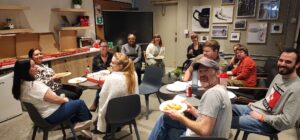
What are some difficulties you faced in university or field school?
Oh my gosh, so many. My undergrad went relatively smoothly, and probably the worst of it was how sick I was while working in Belize—ten-hour days excavating in the tropics for a month straight didn’t exactly agree with me in terms of heat stress, otherwise I loved it!
My graduate program, however, has been fraught with challenges. I started my Master’s at the height of the COVID-19 pandemic, and absolutely nothing about it has been smooth. From difficulties getting half my assemblage out of Mexico to the lab for experiments (it’s still there), technical difficulties I was very under-qualified to troubleshoot, and ongoing challenges related to the logistics of international research in the post-COVID world, it’s been a crazy five years. On top of all of that, I spent a good portion of my program sick as a dog when a previously dormant autoimmune condition flared up in the middle of it all which altered my capabilities of working on my thesis for a couple of years. Another lesson for you, learn good stress management! My condition doesn’t necessarily make the work I do hard, but it does make traveling to a lot of the places we do fieldwork in CRM much more difficult. I thought I’d have to figure out something completely different to do with my life if I couldn’t do fieldwork. That bit was absolutely heartbreaking for me, as I had only just secured my first fieldwork job in CRM two months prior to my diagnosis, and felt like I was losing a career I had barely started.
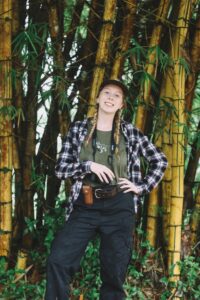
Thankfully, it didn’t mean I had to leave archaeology entirely; it just meant I had to accept that my career might end up looking a little different than I thought it would. The whole experience has been a bit of a rude awakening, as I’ve come to realize that all the clichés are true. So take it from me: your journey is yours, it’s okay if the timeline you had in mind is not the one you manage to follow, and when things are out of your control, all you can do is take a breath and persist. That became my mantra with my supervisor: pivot and make it work.
What do you find most rewarding about your work?
Knowing that I’m contributing to the preservation and conservation of history and culture, and that I’m getting more opportunities to engage in truth and reconciliation efforts. Of course, nothing beats finding a beautiful projectile point or an amazing site out in the field, but there’s a lot more to archaeology than just that. It’s very important that we know and understand our true histories as we forge ahead into the future, and that we value the lessons they hold for us. Archaeology plays a huge role in this, and much of it actually happens on the back end—with the artifacts in the lab, the data and interpretations, report compilation, collaborations with museums and other institutions, and working in close relations with Indigenous peoples throughout the whole process. It feels incredible to help ensure that archaeological sites and the history of this nation and its first peoples are recorded, preserved, and understood. At the same time, it’s rewarding to help bridge the gaps between the discipline, its proponents, and the Indigenous peoples of this country. We only get one chance to preserve and foster such things in this life, and I’m proud to be part of both an industry leading those efforts and a company striving daily to be an industry leader.
How would you spend your evening if you were in a cabin with no cell service and no internet?
I think you just described my perfect evening! Easy, I’d be doing one of two things: reading or writing. I’ve always been an avid reader, especially of speculative fiction, and I love creative writing, particularly poetry and fantasy. Even though I spend my days at Circle writing reports and assessments, I typically also spend a lot of my free time exercising my writing brain. I don’t consider myself much of a poet (though it’s an enjoyable challenge), but writing fantasy is a lot of fun—to dream up, research, and write. As long as I have a good mug of tea and some music to go with it, I’d be thrilled to hunker down in a cabin far away from it all and retreat into a world full of magic and adventure! Bonus points if I can bring my cats along for cuddles.
What is your archaeological dream?
My archaeology pipe dream is to incorporate cadaver search dogs into CRM archaeology in Canada. To achieve this, I’m focusing on finishing my thesis, getting it through peer review, and publishing it for the research community. I plan to continue my work with archaeological dogs, especially advancing methodologies for identifying ancient Maya dogs once I’m done with school. I’d also love to expand these methods to other kinds of dogs and regions, see how far we can take it, and perhaps get the museum industry involved somehow! I admit I’m biased, given the focus of my research, but I believe that the relationship between dogs and humans is an under-utilized partnership in archaeology. Although a few American CRM firms already use cadaver dogs, I’m curious about how we could adopt this in Canada.
Now that you have been doing this for a few years, what would you tell your (relatively) younger self?
I’d tell her to be brave and just take the chance—whatever it is. Don’t pass up an opportunity, no matter how big or intimidating it feels. Declare that major or minor. Go to the conference and present your work. Take that excavation or survey shift in some little nowhere town you’ve never heard of. Get on the plane and go to the field school. Volunteer on projects, in museums, in labs—anywhere and everywhere that will have you. Never stop chasing more. It’s cliché, but life and growth really do begin outside your comfort zone.
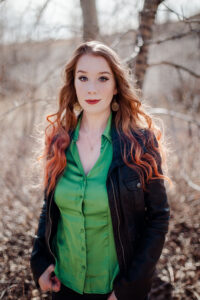
Research is hard. Academia is just as tough as CRM in many ways, and it can be equally unforgiving. If your research ends up beyond the scope of your program, it won’t care—and it’ll be on you to figure it out. That’s going to be hard and overwhelming. You might have to take a step back, and that’s okay. But if you want it, and you love it enough, you’ll find a way to make it happen.
Carving out your space in this industry beyond the classroom takes a lot—physically, mentally, and emotionally. It’s tough, and it won’t always go smoothly. But you can always pick yourself back up, dust yourself off, and keep moving forward after your knees hit the ground. At the same time, know your limits and don’t overstep them. We love our fieldwork—but nothing’s worth your health. The site’s still going to be there when you’re done puking your guts up in the bush. Take it as it comes, and keep your mind rolling ahead with an eye toward the future—you’ll be fine. Promise.


